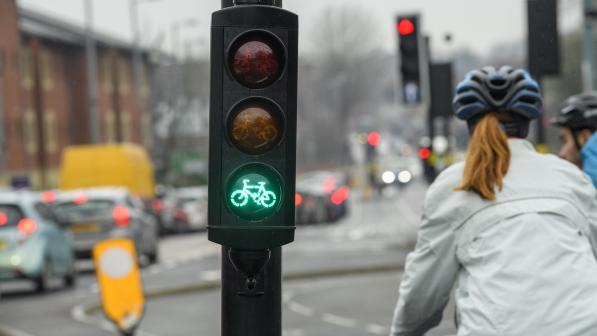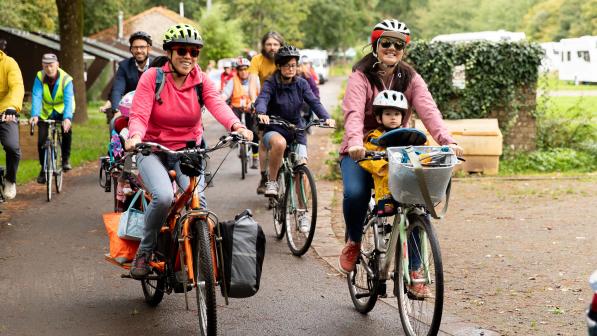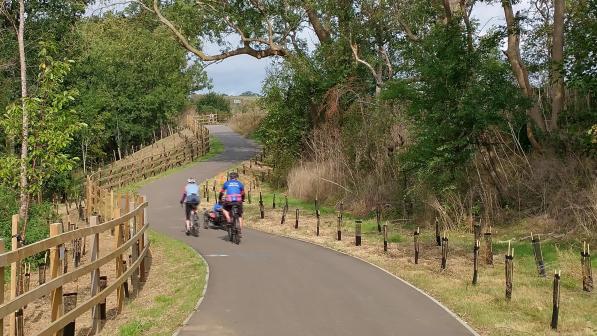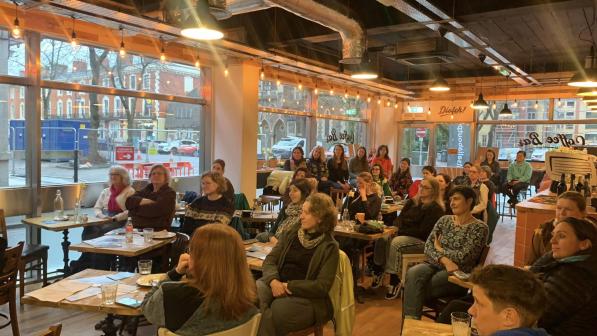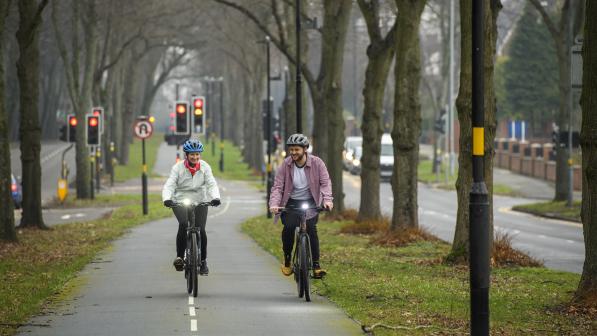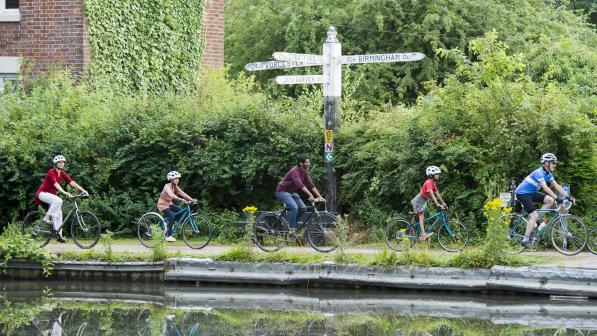Making the planning system work for cycle campaigners
‘Describe how you feel about planning in one word.’
That was what Planning Aid Scotland (PAS) challenged us to do at the beginning of a recent training session for members of Cycling UK’s Scotland Advisory Committee, staff and campaigners from our Cycle Advocacy Network partner groups.
Control, rules, problem, mire, confusing, labyrinth, governance, perplexing – the answers given highlighted that although we know the planning system is important, it’s not something that many of us understand well or know how to engage with.
Thankfully, PAS are experts and in just a couple of hours clearly explained the basics of the planning system and how we can engage with it to ensure positive outcomes for cycling. While their focus was on Scotland, many of the key principles remain the same across the UK.
National planning policies
Planning is a key public service – without it there would be no control over what people build in our neighbourhoods and no forethought about what is in the public interest for the places where we live.
The planning system in the UK was established through legislation in 1947 and these days the control of planning is fully devolved, for example to Scottish ministers who set national priorities.
Recently the Scottish Government published its fourth National Planning Framework (NPF4) which includes policies aimed at reducing climate emissions in Scotland, such as a focus on sustainable transport and local living, and the development of a national Walking, Cycling and Wheeling Network.
A key take-home message from PAS was that we should all get to know the NPF4 and its policies, as these should guide all local planning decisions in future.
If you are reading this in England, Wales or Northern Ireland, the NPF4 won’t apply to your local council but the principle remains that you need to get to know your government’s national planning policy and use it to influence local planning decisions in the right way.
For example, the Welsh Government’s planning policy includes positive policies to enable more sustainable travel choices.
It’s easier to argue against a local development if you can show how it contravenes national policy.

Local development plans
During the training session it became clear that there is a subtle but very important difference between engaging with councils about new local developments and influencing the council’s roads departments about roads and cycle lanes.
Many of us cycle campaigners are more used to campaigning for new cycle lanes in our communities by responding to Traffic Regulation Orders (TROs) and influencing network plans, all of which are overseen by roads and active travel officers in our local authorities.
We are, perhaps, less familiar with Local Development Plans (LDPs) which allocate land for new homes and other developments, and responding to planning applications.
The planning system isn’t perfect and although there are national policies (such as NPF4 in Scotland), they are not legislation and, along with LDPs, are open to interpretation by developers, planning officers and councillors.
That’s why it’s very important to know the planning landscape in your area and to try to influence local planning decisions where you can.
Get familiar with the LDP where you live and have your say when new LDPs are being developed.
Another key learning point was that as campaigners we need to get in early to influence development plans, whether to ensure there are cycle lanes enabling people to cycle in new housing developments, or providing evidence and opinion to challenge developments which are built for car users, such as out-of-town shopping developments or a new drive-thru.
Making space for cycling
As a group we discussed the importance of using our local knowledge of where cycling infrastructure is desperately needed to call on councils to ensure that developers put in active travel links and connections which will enable more people to cycle.
Councils produce weekly lists of planning applications, so part of the skill as a campaigner is to become adept at skimming past the extensions and conservatories to find the meatier applications for new housing estates or development on key areas of land.
Armed with your knowledge of national planning policy and LDPs, it’s time to respond to planning applications or pre-planning application consultations, and make representations/submissions or give evidence to the council planning committee.
Decisions by councils aren’t always ‘Yes’ or ‘No’ to developments. Another way to secure more benefit for the community is to push for councils to impose obligations or conditions on developers – for example, to link existing paths or provide cycle storage.
Sadly, active travel infrastructure such as cycle tracks, cycle parking and 20mph zones may not be included in new developments as a matter of course, so as campaigners we have the opportunity to make the case that they should be in the designs or included as conditions of approval at the earliest point.
In the long term our work can help developers, councils and elected councillors to see the importance of having high-quality active travel provision designed in from the start, rather than as an after thought.

Take-home messages
Here’s a summary of the key points from the training provided by PAS:
- NPF4 is paramount – or your equivalent national policy in England, Wales or Northern Ireland
- Know your Local Development Plan and supplementary guidance
- Know your key planning messages – what you want to see and where
- Build relationships – with council staff, councillors or others locally, such as community or parish councils
- Keep an eye on the weekly list of planning applications.
- Influence decisions – give views and suggestions at pre-application consultation events, submit views or make representations to planning applications, and lobby councillors
- Remember – not everything you want is governed by planning but it can be useful.
If you need independent advice about planning, there’s support in your nation from Planning Aid England, Planning Aid Wales, Community Places (Northern Ireland) and Planning Aid Scotland.
If you want to discuss and share more on the planning system with other campaigners, why not connect with Cycling UK’s Cycle Advocacy Network?
